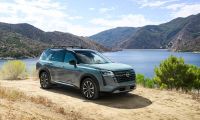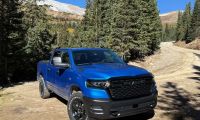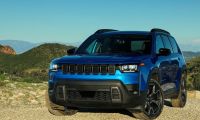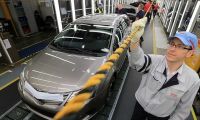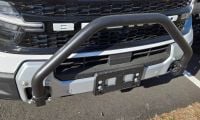Many have seen the images of devastation from Japan caused by the earthquake that measured 8.9 on the Richter scale along with the following tsunami, nuclear explosions and rampant fires but some Americans may not realize the impact that this chain of natural disasters could have on the American automakers as well as their Japanese counterparts. Among the most commonly seen images are the shots of the loading dock lined with vehicles literally stacked on top of each other like toppled dominoes. Reports indicate that the hardest hit by the destruction of the already-assembled models is Nissan and their luxury arm Infiniti with a massive number of vehicles damaged beyond repair. On top of the damage to the vehicles already destined for the US market, Toyota, Mitsubishi, Honda and Suzuki have all been forced to shut down factories due to a variety of reasons stemming from the earthquake and tsunami – ranging from damage to the plant to supplier shortages.
According to the Automotive News, a few vehicles that may face delivery delays due to the recent disasters in Japan are the Nissan 370z, the GT-R supercar and mostly importantly for Nissan – the Leaf electric vehicle. The Leaf has faced slow delivery since selling out in the US market and the company has faced a great deal of criticism for it…but this could cause more delays beyond the automaker’s control. The Toyota Prius could also face delays from shortages throughout the supply chain – offering an advantage for the Chevrolet Volt as fuel prices continue to climb.
This may seem like an opportunity (albeit for an unfortunate reason) for the US automakers to gain some market share but even the most “American” models feature components (especially electrical) made in Japan and those components use parts provided from other manufacturers impacted by the earthquake and tsunami. Most significantly, companies using Japanese-built hybrid components (like Ford) could face supplier shortages as they receive their hybrid batteries from Japanese-based Sanyo and while Sanyo is not directly impacted by the disasters, the Tier 2 companies that provide components for Sanyo could cause backups as time goes on.
TorqueNews.com will continue to cover the impact of the disaster in Japan, bringing you breaking news as it happens!
Source: Automotive News
Other Automotive News:
B&M Automotive buys Flowmaster Exhaust
Lamborghini to train Flying Doctors to repair damaged Aventadors
Fastlane of Houston to build a custom 500hp Ram 1500 R/T
Kia recalls Optima sedans over rollaway risks
Saturn Vue turned Chevrolet Captiva Sport to be sold in the US
Set Torque News as Preferred Source on Google







